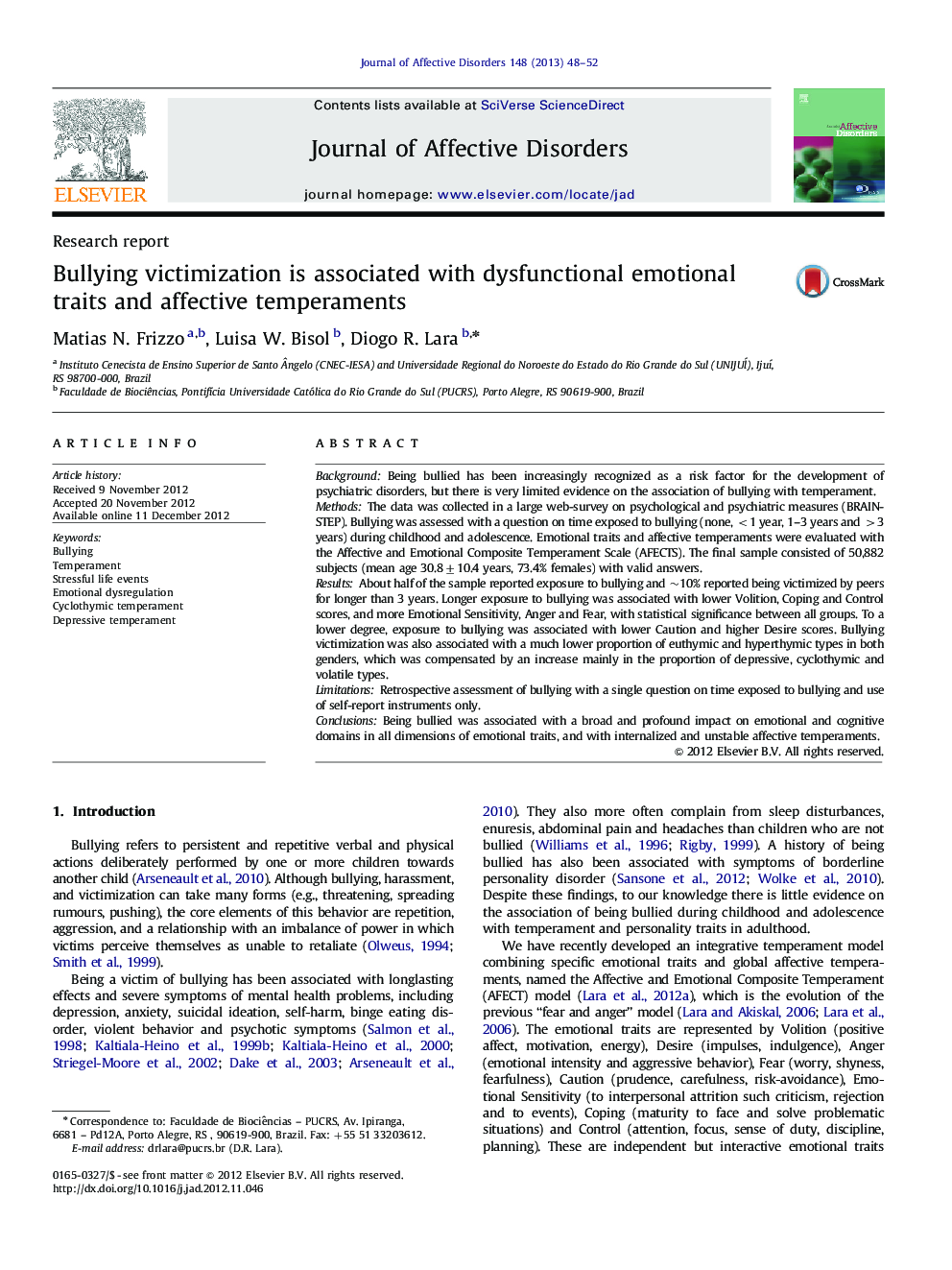| کد مقاله | کد نشریه | سال انتشار | مقاله انگلیسی | نسخه تمام متن |
|---|---|---|---|---|
| 6234517 | 1277561 | 2013 | 5 صفحه PDF | دانلود رایگان |
BackgroundBeing bullied has been increasingly recognized as a risk factor for the development of psychiatric disorders, but there is very limited evidence on the association of bullying with temperament.MethodsThe data was collected in a large web-survey on psychological and psychiatric measures (BRAINSTEP). Bullying was assessed with a question on time exposed to bullying (none, <1 year, 1-3 years and >3 years) during childhood and adolescence. Emotional traits and affective temperaments were evaluated with the Affective and Emotional Composite Temperament Scale (AFECTS). The final sample consisted of 50,882 subjects (mean age 30.8±10.4 years, 73.4% females) with valid answers.ResultsAbout half of the sample reported exposure to bullying and â¼10% reported being victimized by peers for longer than 3 years. Longer exposure to bullying was associated with lower Volition, Coping and Control scores, and more Emotional Sensitivity, Anger and Fear, with statistical significance between all groups. To a lower degree, exposure to bullying was associated with lower Caution and higher Desire scores. Bullying victimization was also associated with a much lower proportion of euthymic and hyperthymic types in both genders, which was compensated by an increase mainly in the proportion of depressive, cyclothymic and volatile types.LimitationsRetrospective assessment of bullying with a single question on time exposed to bullying and use of self-report instruments only.ConclusionsBeing bullied was associated with a broad and profound impact on emotional and cognitive domains in all dimensions of emotional traits, and with internalized and unstable affective temperaments.
Journal: Journal of Affective Disorders - Volume 148, Issue 1, 15 May 2013, Pages 48-52
